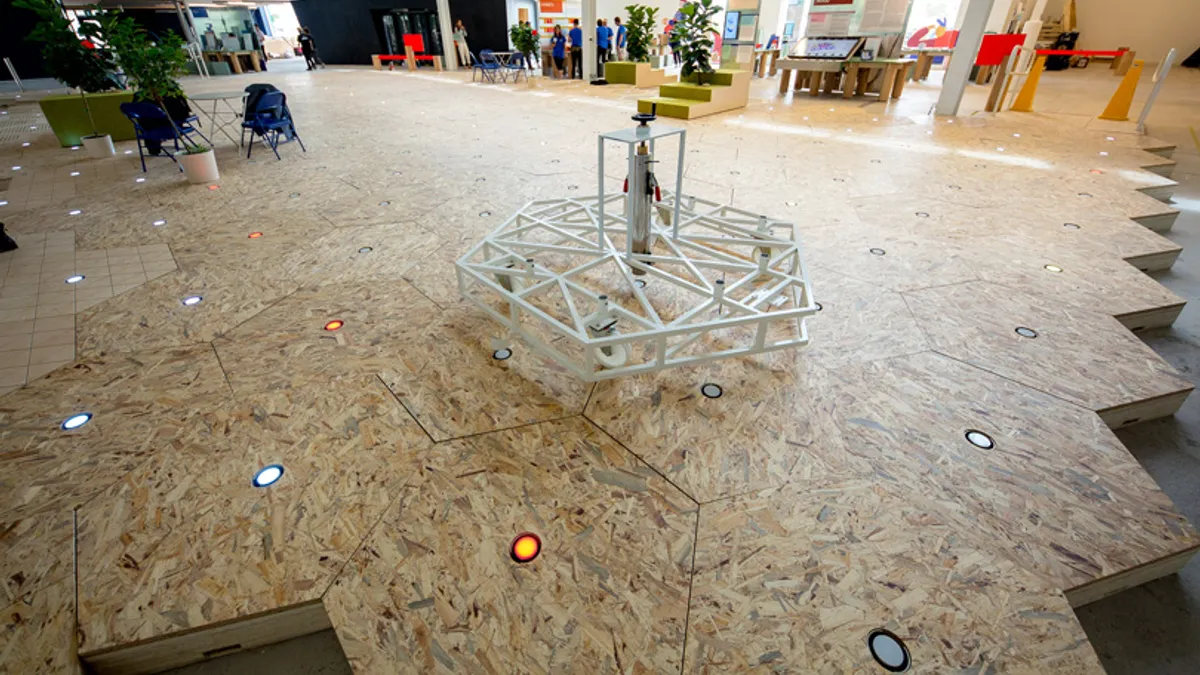Dive Brief:
- Alphabet's Sidewalk Labs and design firm Carlo Ratti Associati (CRA) have developed a prototype for a modular, reconfigurable pavement system that could make streets and pedestrian areas more adaptable.
- The prototype would replace static roadways with a set of hexagonal blocks, which could be picked up and rearranged within minutes based on need. For example, roads could be reconfigured to accommodate extra traffic during busy hours, then transitioned into open space for play or relaxation in the evenings and on weekends, according to a press release.
- The modules have embedded lights to direct traffic, or designate bike lanes and hazard zones. They would also have "plug and play" elements, for planners to install bike racks, bollards, signs, basketball hoops or other structures.
Dive Insight:
The prototype, which is on display at Sidewalk Labs' office in Toronto throughout the summer, fits in with a growing trend of projects seeking to make roadways more adaptive to their surroundings. London last fall debuted a "smart crossing," which uses cameras, sensors, computer programming and a large LED screen installed in the ground to display road markings in response to what vehicles, pedestrians and bikers are around at any given time. The Dynamic Street is itself modeled after a pilot by the French public research institution IFSTTAR, which is testing a more sustainable modular roadway in Nantes, France.
Carlo Ratti, founder of CRA, said in a statement the project "creates a space for urban experimentation. "Especially with autonomous vehicles (AVs) coming online," he said, "we can start to imagine a more adaptable road infrastructure." As more cars can fit into smaller spaces, or as people move to alternative transportation modes, reshaping roadways is becoming more frequent.
Detroit, for example, has embarked on a massive project to cut two lanes from the seven-lane East Jefferson Avenue thoroughfare to accommodate bikers and pedestrians. Those repairs would certainly be easier under a dynamic system that relies on lights and replaceable slabs of pavement.
The display also comes at a pivotal time for Sidewalk Labs, the offshoot of Google's parent company. A public filing on the outfit's partnership with Waterfront Toronto to develop a model smart city revealed the test will be done on 12 acres, rather than the 800 originally planned, and Waterfront Toronto’s CEO and two board members resigned in the past month, according to StateScoop. The upheaval doesn’t appear to have delayed the project significantly, and Sidewalk Labs is moving full steam ahead on its other closely-watched initiatives.










